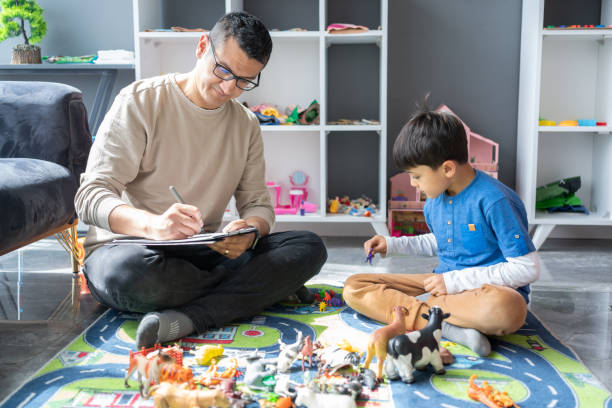Play therapy is a therapeutic approach that uses play as a medium for helping children express their feelings, explore their experiences, and develop problem-solving skills. This method is grounded in the belief that play is a natural way for children to communicate and process their emotions. Through play, children can safely express thoughts and feelings that they might not be able to verbalize. Play therapy is particularly effective for children dealing with trauma, anxiety, behavioral issues, and social challenges, as it allows them to work through difficulties in a supportive and non-threatening environment.

Play therapists are trained to observe and interpret children’s play, using toys, games, and creative activities to facilitate emotional and psychological healing. They create a safe and structured space where children feel comfortable to explore and experiment. Sessions might include activities like drawing, storytelling, role-playing, and building with blocks. By engaging in these activities, children can develop healthier behaviors, improve their social skills, and gain a better understanding of their emotions. Play therapy not only helps in resolving current issues but also equips children with coping mechanisms and resilience that can benefit them throughout their lives.
